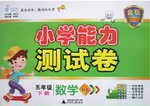题目内容
Reading for pleasure is declining among primary-age pupils, and increasing numbers of "time poor" parents are dropping the practice of sharing bedtime stories with their children once they start school.
Research presented to a conference last week found that, while parents read to preschoolers, this later tails off, and by the final year of primary school only around 2% read to their children every day. Once children can read skillfully, parents tend to step back, and this usually happens at the age of seven or eight. The report also found that 82% of teachers blame the government's “target--driven" education policies for the fact that fewer children are reading for pleasure.
They believe that a straitjacket (束缚) of strictly organized schooling is containing young people's ability to read more widely. Two-thirds of teachers surveyed said they lacked time in the school day to introduce a variety of books and that this was a “major obstacle to being able to develop a level of reading". Teachers also cited as main factors the reduction in the number of school librarians, who could put interesting books before children, and the rise in "screen time", switching children from reading to playing games.
The majority of teachers said the curriculum's (课程) " emphasis on reading as a skill to be mastered" was increasing the pressure. This was compounded by parents who saw reading just as a focus of learning, a skill critical to career advancement in a competitive world.
Reading habits and the digital revolution in publishing were key topics of debate at the conference. The theme of the lack of British culture was supported by children's writer Frank Cottrell Boyce, who wrote the scripts(手稿 ) for the opening and closing ceremonies of the 2012 Olympics.
“We discovered the whole nation had forgotten that they did the industrial revolution," he said.
“Books are so central to it; books can be written by anyone. A lot of the pleasure of a book is listening to somebody read it to you. "
"We found a real love of reading among teachers, and a strong desire ,to encourage more children to read for pleasure ,”said Rob Cheney," However, the teachers also had an overpowering sense of frustration with their situation." "Touch-screen phone and tablets ( 平板电脑)are naturally attractive to children ," the survey Said ,and predicted a period of awkwardness as everyone else adapts . By 2018, children's television will have adopted the presence of this second screen, and it "will be strange not to have children, at home drawing along on tablets and then having these appearing live in the show ".
The hope is “that user-friendly screens could, if material is adapted and downloaded easily, present an opportunity for more ambitious publishing - for example, books children can either read or choose to have read to them; or digital books with moving pictures instead of photos to clarify factual and scientific points. Parental controls that are easy to use would be key, the conference was told, such as "a warning for when devices use the Wi-Fi, especially after bedtimes", to allow parents to shut off access to children in the home.
1.What leads to parents' dropping the practice of sharing bedtime stories with their children?
A. Children have less time to spend with their parents after they start school.
B. Parents think it unnecessary to do so when children can read themselves.
C. The government’s education policies have placed much burden on children.
D. Children don't like parents reading stories to them when they are seven or eight.
2.Which of the following is not teachers' point of view?
A. Children are prevented from reading widely enough in school.
B. Schools pay attention to reading skills instead of reading for fun.
C. Playing video games reduces children's time spent on reading.
D. School libraries can't provide good books for lack of money.
3. The word "compounded" (Paragraph 4) most probably means ______.
A. worsenedB. preservedC. reducedD. improved
4. It can be inferred from the article that ______.
A. children don't like reading because books are not attractive
B. British people enjoyed reading books very much in the past
C. teachers forbid their students to read more books for fun
D. children should enjoy more freedom to use the Wi-Fi at home
5.What is the passage mainly about?
A. Parents should set a limit to their children's using electric devices at home.
B. Children are encouraged to read as many interesting books as they can.
C. Children miss out on pleasures of reading a good book in modern life.
D. Experts appeals to the government to reduce the heavy burden on children.
1.B
2.D
3.A
4.B
5.C
【解析】
试题分析:本文提到最后发现孩子的阅读兴趣逐渐的降低,与父母的不重视,客观条件不充足,不无关系。
1.B 细节理解题。根据第一段提到increasing numbers of "time poor" parents are dropping the practice of sharing bedtime stories with their children once they start school许多没有时间的父母减少孩子晚上睡觉阅读的时间,可知选B项。
2.D 细节理解题。根据第三段提到Teachers also cited as main factors the reduction in the number of school librarians, who could put interesting books before children, and the rise in "screen time", switching children from reading to playing games老师们说,因为图书馆的数量在减少,不能给孩子提供更好的书,故选D项。
3.A 细节理解题。根据第四段提到The majority of teachers said the curriculum's (课程) " emphasis on reading as a skill to be mastered" was increasing the pressure. This was compounded by parents who saw reading just as a focus of learning, a skill critical to career advancement in a competitive world许多老师说强调阅读带来了许多的压力,一些父母把阅读看作一种在职场必胜的技能,恶化这一情况,故选A项。
4.B 细节理解题。根据第六段提到We discovered the whole nation had forgotten that they did the industrial revolution我们发现整个国家忘记了在工业革命期间所做的事,第七段提到Books are so central to it; books can be written by anyone. A lot of the pleasure of a book is listening to somebody read it to you书是中心,读书有许多的乐趣,故选B项。
5.C 主旨大意。本文以Reading for pleasure is declining among primary-age pupils,开篇,主要讲述现在生活中孩子逐渐失去了阅读的乐趣,故选C项。
考点:科普类阅读。

 期末100分闯关海淀考王系列答案
期末100分闯关海淀考王系列答案 小学能力测试卷系列答案
小学能力测试卷系列答案